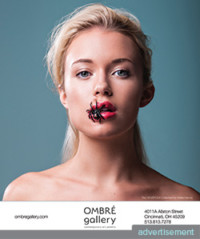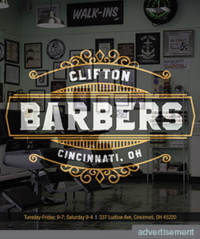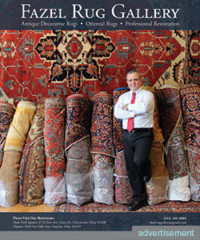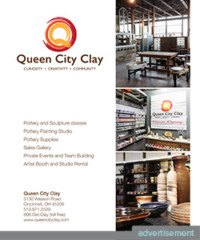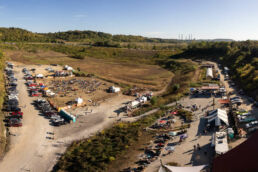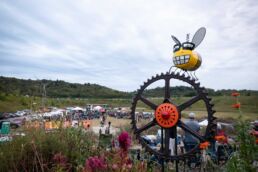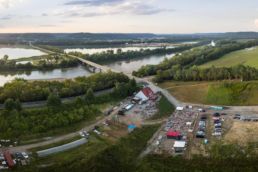words SHARMAINE MCLAREN | photography DEOGRACIAS LERMA | photography assistant SARAH COCHRAN
hair FRANCIS ROBINSON | makeup JENNIFER HOFF SIMPSON | clothing and jewelry ARLENE ARANZAMENDEZ of ATELIER ADORN USA
 In a voice reminiscent of divas past, playing an upright bass larger than she, Kate Davis lures listeners into a timeless space, where musical genres converge. The first time I heard that voice was on her cover of “All About That Bass,” which Kate recorded with Scott Bradlee’s Postmodern Jukebox. Seconds in, I was hooked.
In a voice reminiscent of divas past, playing an upright bass larger than she, Kate Davis lures listeners into a timeless space, where musical genres converge. The first time I heard that voice was on her cover of “All About That Bass,” which Kate recorded with Scott Bradlee’s Postmodern Jukebox. Seconds in, I was hooked.
Kate’s talent as a multi-instrumentalist, vocalist, and songwriter developed from an early age. She took up the violin at age five, mastered the bass by middle school, and played both instruments with the Portland Youth Philharmonic before graduating from high school. Her work was recognized in 2009 when Kate was named a YoungArts winner in Jazz/Bass and Jazz/Voice and Presidential Scholar in the Arts. Jazz and standards enthusiasts are not the only ones that have taken notice of Kate. In 2014 she was named one of MTV’s “15 Fresh Females Who Will Rule Pop.”
Not content to merely interpret the words and sounds of others, Kate ventures forward exploring her own voice as a songstress, not only as one who sings but also as one who writes. Maybe it is her lifelong training, or possibly her early and deep appreciation for the songwriting geniuses of the past, but something innate brings Kate’s lyrics to life with a maturity beyond her twenty-four years. Witty, sardonic, and beautifully nuanced, Kate’s style is somehow ageless, both old and new at the same time.
Our time with Kate begins at the Harlem apartment that she shares with her sister. Kate’s place is much like her music, evolving and eclectic. Bright white walls and modern furniture are warmed by the deep wood tones of her instruments resting against the wall, a fuzzy throw tossed over the back of the couch, and a brightly colored painting not yet hung. In front of a picture window, nearly the length and height of the room, is her desk.
“This is where it happens,” Kate shares, gesturing toward the notebooks and writing instruments covering the desk surface. She has a computer but confesses to writing most of her songs freehand.
“The computer is mostly for distraction.” That is, for distraction and for her internet obsession with David Duchovny, circa 1993. A freestanding vertical turntable, her father’s from his Sony days in the early 1980s, shares desktop space with the computer. “And, it still works!” Kate brags. Reaching beneath the desk, she retrieves an album to prove her point. Moments later, we’re listening to Jeff Buckley’s only complete studio album, Grace, and talking about all things Kate.
 Polly: Kate, your work receives complimentary reviews across genres, with each applauding your ability to be approachable to all lovers of music. How did you arrive at this unique sound?
Polly: Kate, your work receives complimentary reviews across genres, with each applauding your ability to be approachable to all lovers of music. How did you arrive at this unique sound?
Kate: For me, it wasn’t much of a choice at all. I find that the things I like are just the things I like, and that’s what comes out. I’ve been fortunate to be able to learn through many genres and to be part of many types of music, but I don’t think about it as being like this, or this, or this. It’s not all compartmentalized in my mind. It’s just music.
I think that people might appreciate my interest in flowing through these different sounds, and kinds of music, but for me it is just melody, and sometimes words, and harmonies, and all the things that make music. It’s been a natural process for me and not really a journey at all. It’s just been fun.
P: You write with a maturity beyond your years. Were you born an old soul, or have life’s lessons brought you wisdom?
K: I think it’s a combination. I’ve been alive long enough to have been through some stuff, but I also think that old stuff has always been a part of my life. When I was a kid, I used to always watch old movies and listen to old music to try to understand the themes. I wanted to figure out how I feel about love and loss and those very basic building blocks of life that everyone deals with and everyone experiences in different ways.
I’ve also been really lucky to have had the opportunity to learn in many different styles, to have a technical foundation in music. But also I grew up listening to more simple music, so my understanding of music as a whole is not boxed. Music is one huge thing, and that is how I chose to make music and live. I find that by keeping thingsfocused on content and really beautiful melodies, things that resonate with people, that’s the best way to make music. If people are drawn to that, it’s because it is like a simplified version of everything. I have certain aesthetic tendencies, but I do not feel limited in any way.
My plan is to continue making music, not any one kind, just music, in the hope that it continues to reach people and that others find whatever they want in it. Because that’s it too — making music accessible because it’s not just for me. Music is most valuable when it can reach people and help them understand things about life or themselves.
 P: You mentioned earlier that you have learned some life lessons and have had to work “through some stuff.” Is writing your songs like therapy? Is that how you process things?
P: You mentioned earlier that you have learned some life lessons and have had to work “through some stuff.” Is writing your songs like therapy? Is that how you process things?
K: Totally. Song writing is a very cathartic process. I find it really helps to organize your ideas and thoughts through an artistic medium. If you’re really hung up on some idea, or things are bothering you in a certain way, sometimes all you need to do is to sit at your computer and type all your thoughts. Get it all out, and be like, “Okay, this is how I’m feeling. Now I’m going to process this.”
I find that songwriting is kind of a similar process to working on stuff because you are shedding light on topics that are interesting to you. You are breaking them down and making them digestible through music, something that can carry the weight of the content, but you are also laying it out like a story, trying to share this information in a way that is understandable to other people. I have lived a little bit but not that much. I’ve still got a lot of years left, but I think everyone should try to do something like that just to try to understand. I know it helps me understand, and I think that’s what art is anyway. You are creating things to help other people, and that is why it’s important. I think it will be interesting, as I get older and I write more, to see if that process gets more complicated, or if it changes, because for me it’s all about what I am hung up on right now.
P: You say you developed an early love of old music and movies. You’ve written beautiful songs about death and dying. Were you surrounded by older people when you were younger, and is that how you were exposed to loss?
K: When I was young I had a lot of really wonderful mentors who were older, who had been through the music scene and had already played their one million hours’ worth of gigs. They really knew what they knew, and they shared it to help me. Also, a lot of the people who would come out to support these types of musicians were much older. Because I was playing styles that were well liked by the older folk of Portland, I did see people pass on, and I wasn’t used to that. My grandparents are quite young and I still have all of them.
But, honestly, the real truth about my songs about dying is that my dad was battling cancer, and I was looking death straight in the face all through college. It was hard not to think about it. I used writing to process it. Death is not easy. I‘m still having a hard time with it. I think we all do. I don’t think it’s going to get any easier, but it was helpful to try to accept it as a thing. The whole point is to remember that we’re all going to die. It’s not easy, but if you are aware of it, then it’s a little easier to process. I lost my dad over a year ago and having gone through that I will probably be writing songs about death all my life. They will be part of my grieving process.
P: Your first album is being released soon. Does this experience of recording feel like a first even though you’ve been performing from an early age?
K: Yes, it does actually. I think that it took me many years to come into myself and to feel like I had established my voice. Writing was a huge part of that. When I was younger and released some independent records, it was jazz. It was like me being a little more open and free about things I like, or my vocal styling, or my choice of songs. I did stuff that wasn’t personal but that still allowed me to record and make music and, ultimately, sell the records at gigs or contribute to my repertoire. I had a lot of great opportunities when I was younger to save a lot of money and work all the time playing. Senior year, I only had to take twoclasses, so I could be out late at night and get a lot of experience and actually make a living playing music as a high school student. Not only was my savings account happy, but I had that time to taste things, to find out I like this song or this style. That was an enjoyable and really important time in my life, to really understand my own personal aesthetic.
My dad was a hobbyist–engineer, which made it very easy to record a full album in my living room for no money and put something together for my gigs. That way, people would have something to take home. Dad was a businessman, so those principles were always there and remain to this day. I spend more money than I should right now, but because of that experience, I have a better idea of how the world works.
For me, this record will be really important because I feel I’ve lived enough life and met enough people to support me and help me bring it to life. I’ve also worked out enough kinks as far as my own musicianship and the things I want to say.
The songwriting has been so important, but that is much more recent. It’s taken a couple of years of writing to feel like I’m ready. Songwriting was a new skill I had to hone, much like learning how to play a new instrument. It’s going to be a more formal environment. I’m with a label now, so I’m supported financially, yes, but also I have people helping me with artwork, producing, and promoting. Not to mention that my head is in a much more mature place than it’s ever been. This is my first record and it feels like a first.
 P: I listened to your renditions of “Tea for Two” and “Sunday Morning” one after the other. Together, they show an astounding range in style and phrasing. Considering that your repertoire is so vast and, as you’ve asserted, is still evolving, do you ever see yourself reinterpreting a rock or punk rock song?
P: I listened to your renditions of “Tea for Two” and “Sunday Morning” one after the other. Together, they show an astounding range in style and phrasing. Considering that your repertoire is so vast and, as you’ve asserted, is still evolving, do you ever see yourself reinterpreting a rock or punk rock song?
K: Not to toot my own horn, but I do a pretty solid cover of “Blister in the Sun.” For me, it’s not about when a song was written or what it means. I look at songs as songs, and the Great American Songbook is a great representation to me of an older time, an integrity in songwriting, which set the standard high for every song that came after. I’m just as interested in the nonsensical lyric and in things that sound a little bit drug-induced. There’s something to be said about songs like “Blister in the Sun,” how it stands on its own. That’s the reason people love it, because it makes absolutely no sense.
The thing that has been frustrating for me is that, because I have been so immersed in the American Songbook, there is an assumption that I’m just a goody-two-shoes chick who sings the nice songs with the eloquent lyrics. That’s how I’m perceived. I’m a little edgier than that. There’s more of a dark side to me. I’m a little more aggressive than those sweet standards.
The reason I aspire to move forward from them is, although they helped me to understand my life, they didn’t necessarily reflect my life. That’s the funny thing about music. If I show up at a jazz club and I’m wearing a nice dress and I sing these nice songs all about love, people assume that’s who I am, and it’s just not true. That’s the reason I wanted to write my own songs. I want to write songs that reflect my life and what I’m going through now.
The Polly crew leaves the apartment, following Kate around the corner to the studio where she works with her producer, Rob Moose. The two speak in an artist–producer shorthand as they put the final touches on three songs— “Keep an Open Heart,” “Someday Not Too Far,” and “Sunday Morning”—which are being featured in a One on One Cellar Session being videotaped later in the day.
From the Harlem studio we meet up at City Winery, New York, the location for the video shoot. Crowded in among the wine barrels, musical instruments, and video equipment are Kate, Rob, who will be featured on guitar and backup vocals for the recording, and David Lai and Ross Michaels, Kate’s management team from Park Avenue Artists. The cavernous sound of the space makes me wonder how this is going to work, but then Kate begins to sing and it works itself out.
The day has been grueling. Kate has not stopped moving since we arrived at her apartment at 9 a.m., and it is now nearly seven in the evening. We’re certain she’s ready to wrap for the day, but as the Polly crew begins to show signs of departing, Kate asks what’s next. With dinner being the unanimous response, she asks to join us and takes the lead. We walk past trendy hot spots and cut down several side streets to what Kate tells us is her favorite midtown Mexican restaurant. “I ate here five times a week when I first came to the city. It was cheap and the food was great.”
We enter the tiny storefront and crowd into the loud and lively space already nearing capacity. Sitting elbow to elbow, we finish our meal at the humble eatery that Kate continues to frequent in spite of the considerable changes in her professional career. But I’m not surprised by Kate’s choice, as the underlying theme in her life and music seems to be her natural tendency to preserve purpose for things of the past while forging her own course into the future. Illuminating, profound, genuine, melodic—her latest songs and stylings bear her signature stamp of the fusion of old and new. They are certain to bring Kate Davis closer to attaining the added distinction of accomplished and celebrated songwriter, someday not too far.

